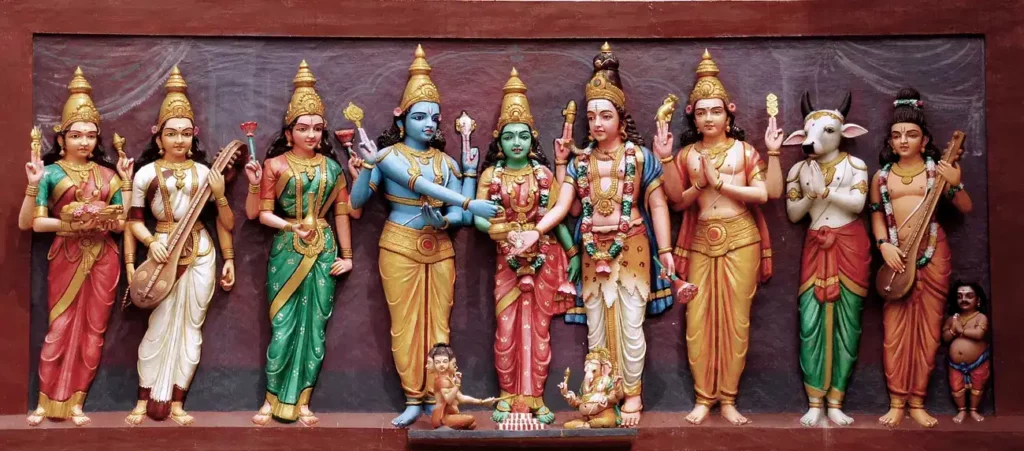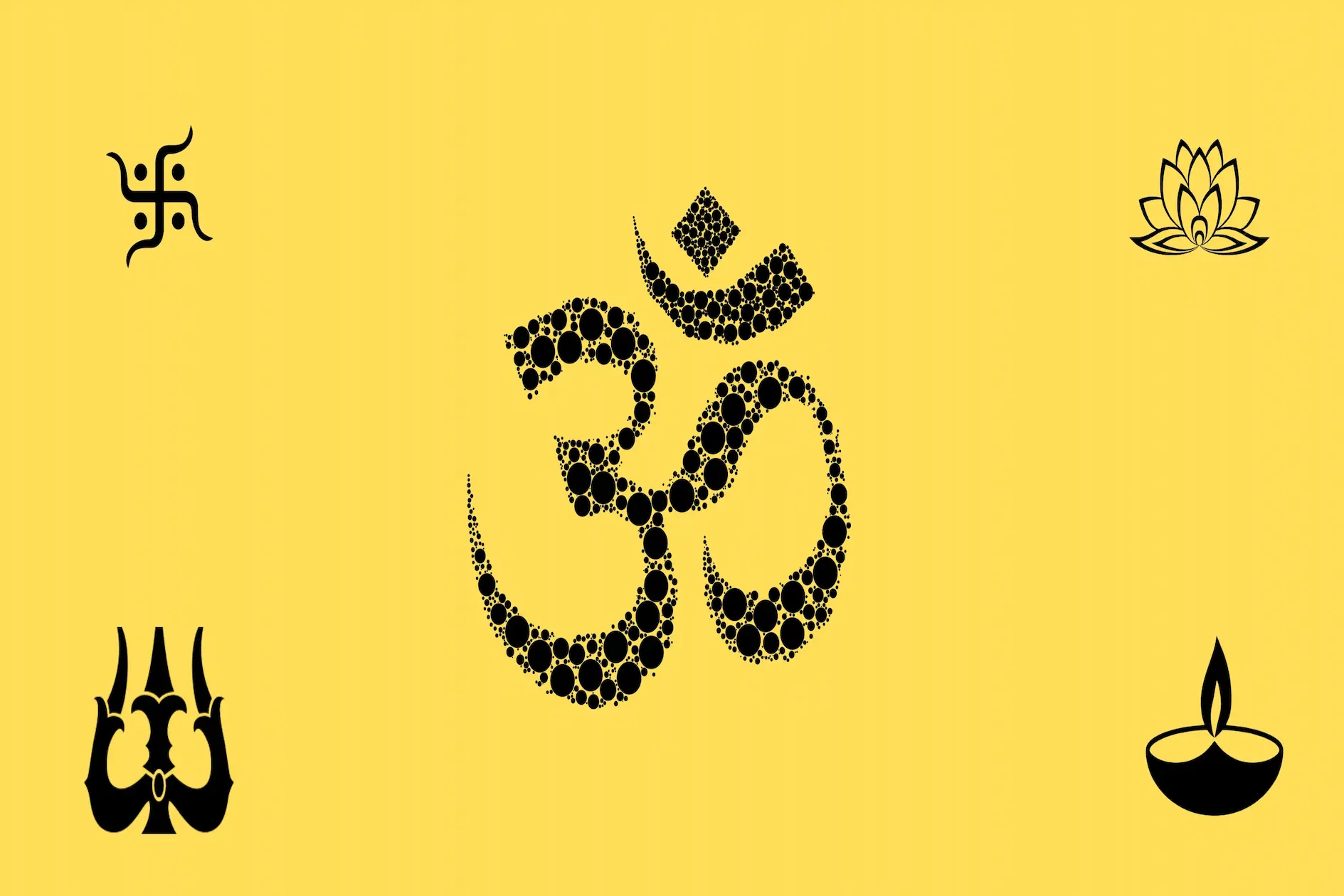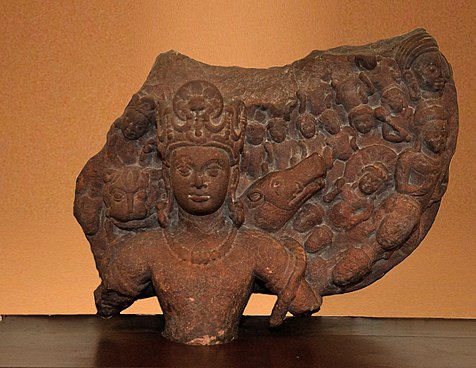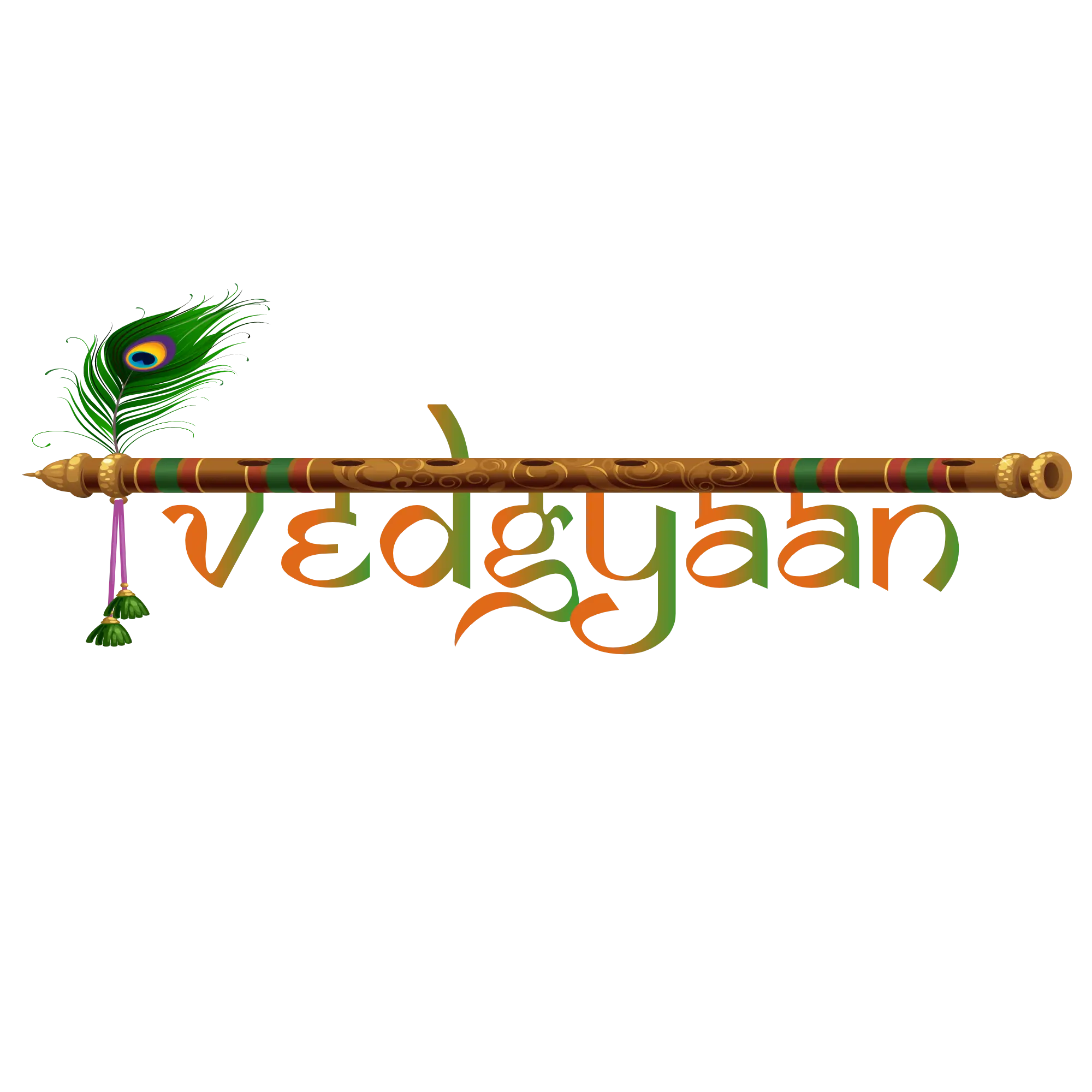The Mahabharata, a revered text of Hinduism, holds immense importance as it narrates the epic tale of a monumental war between two branches of a royal family. Composed between 1500 and 1000 BCE., it provides a profound glimpse into Hindu mythology and offers profound insights into human nature, the complexities of existence, and universal themes of struggle, triumph, and the eternal quest for truth and enlightenment. Exploring the gods in the Mahabharata unravels a fascinating tapestry where mortal and divine realms intertwine, showcasing the profound influence these deities exert on the lives and destinies of the epic’s characters.

Throughout the epic, the gods manifest their powers and intervene in mortal affairs, shaping the narrative and influencing the outcome of the war. They serve as guides, protectors, mentors, and bestowers of boons, molding the destinies of the mortal characters. These divine entities showcase the vastness of Hindu mythology and reveal profound truths about dharma (righteousness), devotion, cosmic order, and the intricate web of interconnections between all beings. Here are some of the most prominent divine figures in the Mahabharata and their significance:
- Lord Shiva: Lord Shiva is one of the principal gods in Hinduism and is often invoked in the Mahabharata for his divine powers and guidance. In the Mahabharata, Lord Shiva is known for his role in granting boons to various characters, such as Arjuna and Ganesha.
- Lord Vishnu: Lord Vishnu is one of the three principal deities in Hinduism and is considered the preserver of the universe. In the Mahabharata, Lord Vishnu appears in various forms, including as Lord Krishna and as the boar-headed avatar, Varaha.
- Lord Brahma: Lord Brahma is one of the three main deities in Hinduism and is considered the creator of the universe. In the Mahabharata, Lord Brahma is mentioned as the creator of the world and is also responsible for creating various creatures and beings.
- Lord Ganesha: Lord Ganesha is the son of Lord Shiva and is known as the remover of obstacles. In the Mahabharata, he is called upon by Vyasa, the author of the epic, to help him compose the story.
- Lord Hanuman: Lord Hanuman is a powerful monkey god who is known for his strength and loyalty. In the Mahabharata, Lord Hanuman appears as a helper of Lord Krishna and the Pandavas and is also mentioned as the father of Bhima, one of the main protagonists.
- Lord Surya (The sun god): Lord Surya, the god of the sun, holds immense power and is often revered for his protection. In the Mahabharata, he is portrayed as the father of Karna, a significant protagonist. Karna, originally abandoned and raised by a charioteer, later discovers his royal lineage. Lord Surya blesses Karna with a formidable bow and arrow, which he wields with great prowess during the battle of Kurukshetra.
- Lord Yama: Lord Yama is the god of death and is often invoked in the Mahabharata for his power over life and death. He is also known for his role in testing and judging the souls of the dead.
- Lord Agni: Lord Agni is the god of fire and is often invoked in the Mahabharata for his purifying and transformative powers. He is also responsible for carrying offerings and sacrifices to the gods.
- Lord Vayu: Lord Vayu, the god of the wind, is invoked for his swiftness and agility. In the Mahabharata, Lord Vayu is depicted as the father of Ashwatthama, a formidable warrior among the Kauravas. Known for his remarkable speed and expertise with the bow and arrow, Ashwatthama also demonstrates exceptional charioteering skills, enabling him to defeat several Pandavas in combat.
- Lord Varuna: Lord Varuna, the god of the ocean, is revered for his power and wisdom. In the Mahabharata, Lord Varuna is credited with creating the vast expanse of the ocean. Furthermore, he assumes the crucial role of examining and passing judgment on the souls of the departed.
- Lord Yama: Lord Yama, the god of death, is invoked for his authority and impartial judgment. In the Mahabharata, Lord Yama assumes the role of the divine arbiter who assesses the souls of the deceased. Additionally, he is known for his pivotal role in testing and evaluating the actions of the living.
- Lord Indra: Lord Indra, the ruler of the gods, is called upon for his might and protective influence. In the Mahabharata, Lord Indra is depicted as a deity who aids the Pandavas in their struggle against the Kauravas. He is renowned for bestowing boons upon various characters, such as Arjuna and Ganesha.
- Goddess Durga: Goddess Durga is a powerful female deity who is often called upon for protection and strength. In the Mahabharata, she is invoked by various characters, including Arjuna, for help in defeating their enemies.
- Goddess Lakshmi: Goddess Lakshmi, the goddess of wealth and prosperity, is invoked for her benevolence and blessings. In the Mahabharata, she is revered as the consort of Lord Vishnu. Additionally, she plays a pivotal role in assisting the Pandavas in their victory at the battle of Kurukshetra.
- Goddess Saraswati: Goddess Saraswati, the goddess of knowledge and learning, is sought for her guidance and wisdom. In the Mahabharata, she is depicted as the wife of Lord Brahma, the creator. She also contributes to the triumph of the Pandavas at the battle of Kurukshetra by bestowing her divine assistance.
- Goddess Parvati: Goddess Parvati, the consort of Lord Shiva, is revered for her strength and power. In the Mahabharata, she is depicted as the mother of Ganesha and Kartikeya. Furthermore, she plays a significant role in supporting the Pandavas during their conquest at the battle of Kurukshetra.
Conclusion
The gods and goddesses in the Mahabharata enrich our understanding of Hindu mythology and provide profound insights into the human experience. They remind us of the intricate interplay between the mortal and divine realms and illuminate the eternal search for truth and enlightenment. As we explore their stories and teachings, we are invited to reflect on our own journeys, confront our inner struggles, and strive for higher ideals, ultimately finding resonance in the divine truths that lie within us all.






